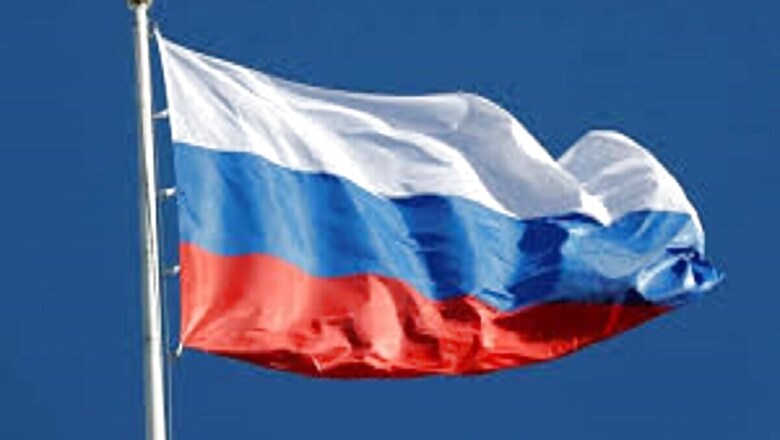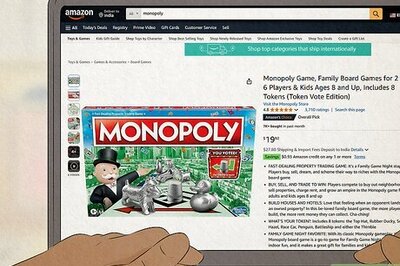
views
Russians vote in regional elections starting Friday with the main opposition leader Alexei Navalny in a German hospital after allegedly being poisoned, the ruling party losing favour and some regions having seen major protests.
Polling will take place on Sunday with early voting beginning on Friday.
Here are five things to know about the polls:
Who votes?
In 41 of the country’s regions, Russians are voting for regional governors and assemblies as well as in four by-elections for national MPs, among other polls.
Governors will be elected in twenty regions including Irkutsk, Tatarstan and Arkhangelsk.
Elections will be held over three days and some polling stations will be open-air, measures officially introduced to guard against coronavirus transmission.
This summer, a national vote on constitutional amendments that made it possible for President Vladimir Putin to stay in power until 2036 was also held over multiple days. The opposition accused the vote organisers of mass falsifications.
Poison and protest
The polls come as the alleged poisoning of Navalny — the country’s best-known opposition figure and Kremlin’s number one foe — has prompted a growing chorus of international concern and threats of sanctions.
Navalny suddenly fell ill on a flight from Siberia, where he had been meeting activists from his campaign teams ahead of the polls and investigating local elites.
Doctors in Berlin, where Navalny was evacuated, found he had been poisoned with a Novichok nerve agent, prompting a horrified reaction across the world, while Moscow insists medical tests in Russia found no trace of poison.
The vote also comes as the far eastern city of Khabarovsk has seen unprecedented protests, involving thousands and lasting two months, over the arrest of a popular governor, who had defeated an incumbent from the ruling party.
The ex-governor, Sergei Furgal, has been charged over gangland killings that took place 15 years ago.
His supporters see his arrest as unwanted interference from Moscow, as those living in far-flung regions often feel they benefit little from the wealth and resources accumulated in the capital.
Furgal’s case and the protest movement in Belarus have both sparked some demonstrations in solidarity in Russian cities, suggesting there is growing potential for a protest vote.
Opposition and new parties
The opposition is injecting an element of surprise into polls, particularly in Russia’s third largest city Novosibirsk where some 30 independent candidates including Navalny supporters have formed an alliance against the ruling United Russia party and the Communists.
Across the country, candidates are also standing for four new parties representing new technologies, the environment, entrepreneurship and conservative values.
But some observers say the development has been encouraged by the Kremlin in order to fragment the opposition electorate while lending the vote a veneer of diversity.
The Communist Party and nationalist Liberal Democratic Party of Russia are also contesting seats.
Traditionally seen as Kremlin-friendly, they have in the past won key races against the ruling party.
‘Smart vote’
Navalny has urged supporters not to boycott votes despite his allies rarely being allowed to stand. He has instead campaigned for tactical or “smart voting”, backing the strongest candidate to defeat United Russia.
This tactic was tested out a year ago in local elections including polls for Moscow’s city legislature.
Following a summer of protests, the ruling party lost a large proportion of seats, largely to Communists.
Navalny and his supporters afterwards faced an even greater onslaught of legal action, detentions and raids.
Test for Putin
Support for the ruling party has fallen, affected by a hugely unpopular reform raising the pension age as well as the struggling economy hit by the oil crisis and the coronavirus. Recent opinion polls show only 30 percent support United Russia.
The vote comes a year ahead of parliamentary elections, however, and the ruling party can count on backing from officials and other elite groups that benefit from the status quo.

















Comments
0 comment